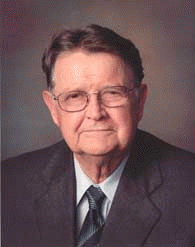Part 1: Basic Premises about Land, Capital, Malinvesting, and Banking Collapse
Mason Gaffney
Part of a "Pilot Paper", conference on the bank bubble, The American Institute for Economic Research, 1994. These notes were not published as such. Parts of them were melded by Editor Clifford Cobb into Part III, "Money, Credit, and Crisis", of our 2009 book, After the Crash.
Although written in 1994, after the "Thrift Debacle" (S&L collapse) of 1991, they could as well have been written, with a few different details, after 2008. Our leaders, political and intellectual, had learned nothing from 1991. The notes could be written again today, in 2012, since our leaders of "left" and "right" are still chanting the same old tired slogans I remember from the playgrounds of 7th Grade when Alf Landon ran against FDR. Hope springs eternal, so here are the notes. Someday, somewhere, new leaders will seek new insights and solutions. Tennyson wrote with hope, "Our echoes roll from soul to soul, and grow forever and forever". That has yet to happen, but remember, the last to escape from Pandora's Box was Hope.
We need not fear that our topic has been preempted by others. At the 1993 AEA meetings in Anaheim, speakers worried that in 1990 consumers slowed buying. None of the economists present knew why. Professor Robert Hall of Stanford, head of the AEA and NBER committee that dates turning points in business cycles, ran through 8 traditional explanations of recession, from high interest rates to overstocked stores, and rejected them all. "... you cannot explain this one", he concluded -- but he still heads that committee. Olivier Blanchard of MIT offered that consumers just "got scared and stayed scared." Blanchard soon rose to Chief Economist of the IMF. We may not do better, but we can do no worse. Here are some principles to orient us, and where they lead us.
1. Land and capital are mutually exclusive categories. Between them they include all assets with intrinsic value. Some of each is needed for all production (each is "limitational"), so both are always relevant.
As to formation, land (by definition) is what is given by nature. It is only Capital that can and must be formed by man, by producing in excess of consuming. Propositions relevant to capital formation must always distinguish land from capital.
Capital formation involves spurts of sacrifice, self-restraint, self-discipline, and self-control. Capital maintenance, and avoiding dissaving, call for continuous self-restraint, generation after generation, and throughout life cycles, not to "eat the seed-corn." Land cannot be consumed, but Capital must be maintained and replaced.
IMPLICATIONS.
A. Capital formation is not aided by, and may be deterred by raising returns to land. All relevant analysis must carefully distinguish the two.
2. Land and capital are not mutually convertible. (Substitution is another matter, considered later.) Capital is convertible into any other kind of capital each time it turns over. With each turnover it is 100% fungible. Land is not convertible even into other land, and certainly not into capital.
Next Page 1 | 2 | 3 | 4 | 5 | 6 | 7 | 8 | 9 | 10 | 11 | 12 | 13 | 14 | 15 | 16 | 17 | 18 | 19 | 20
(Note: You can view every article as one long page if you sign up as an Advocate Member, or higher).






